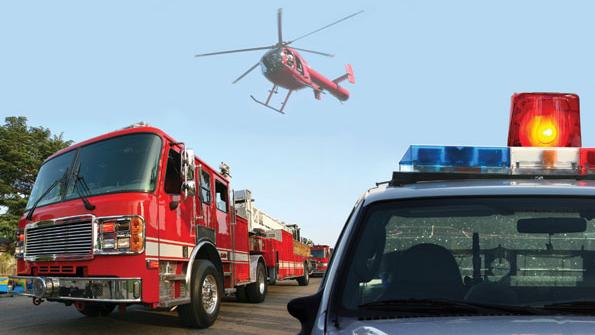Public safety communications set to expand with nationwide broadband network
What is in this article?
Lingering questions
With the passage of the D Block legislation, public safety can finally make plans based on the knowledge that it has the D Block spectrum — a prerequisite to pursuing most partnership deals — and significant funding for network deployment. Although these key big-picture questions have been answered, many others were raised during the days after Obama signed the legislation into law.
The FCC is tasked to create a committee that will establish public safety technical requirements. Those results will be given to the new First Responder Network Authority (FirstNet), which will replace the PSST as the public safety broadband licensee and will oversee the buildout and maintenance of the new LTE network. FirstNet will establish RFP language that all 50 states will be required to follow, although each state will have the option of submitting its own plan that can be used, if it is approved by FirstNet, according to the law.
No one knows how many states will opt to pursue their own plans or how many of the state plans would be accepted. Although federal officials have emphasized that this will be a multivendor network, exactly how the procurement process will work is still to be determined — for instance, will decisions be made at the federal level, such as with military contracts, or will the funds be disbursed to the states and/or local governments, which then would choose vendors?
Of course, the biggest question is whether this grand vision can be executed in an efficient and cost-effective manner that maximizes LTE coverage and application use throughout the nation for public safety — a daunting task for such a massive project. If public safety can maintain its existing unified front as these decisions are made, the task promises to be much simpler.
While there is considerable debate regarding the timing and details of the new law that enables widespread deployment of a public safety broadband network, few question the long-term significance of putting reliable broadband technology in the hands of first responders. “I would dare say that this is the single largest victory for public safety technology in American history,” Mirgon said. “I’ve been in public safety for close to 40 years, and I can’t think of anything that’s happened that’s been this big.”
Donny Jackson is senior writer for Urgent Communications, a sister publication to American City & County.

















Great, more strings attached
Great, more strings attached and more central control.
Because we really can make it a perfectly “safe” world where nobody gets hurt right?